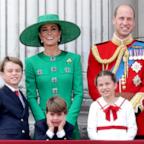Why Junk Food at School Isn't Making Kids Fat
Junk food does, but school is a small part.
Jan. 22, 2012 — -- Junk food in middle school does not lead to weight gain in children.
A study followed nearly 20,000 students from kindergarten through the eighth grade in 1,000 public and private schools. The researchers examined the children's weight and found that in the eighth grade, 35.5 percent of kids in schools with junk food were overweight while 34.8 percent of those in schools without it were overweight -- a statistically insignificant increase.
In other words, kids with access to junk food at school were no heavier than those without.
It's not that middle schoolers aren't eating junk food; indeed they are, just like most Americans. It's that most of the junk food they're eating is not coming through the schools.
"Schools only represent a small portion of children's food environment," said Jennifer Van Hook, a Professor of Sociology and Demography at Pennsylvania State University and lead author of the study.
The same may not hold true for high school students, who are more independent and have more disposable income (and therefore more control over what they eat).
"They can get food at home, they can get food in their neighborhoods, and they can go across the street from the school to buy food. Additionally, kids are actually very busy at school... There really isn't a lot of opportunity for children to eat while they're in school, or at least eat endlessly, compared to when they're at home. As a result, whether or not junk food is available to them at school may not have much bearing on how much junk food they eat," Van Hook said in a statement issued by the American Sociological Association.
NEWS: Baby Fat or Impending Obesity?
The study, "Competitive Food Sales in Schools and Childhood Obesity: A Longitudinal Study," is published in the journal Sociology of Education. Politicians and parents have called in recent years for various measures including a so-called "fat tax" on soda and even an outright ban on candy and junk food being sold in schools.
This research suggests that money spent on efforts to reduce childhood obesity would be much more effective in other areas, such as encouraging parents to choose healthier meals for their kids.




